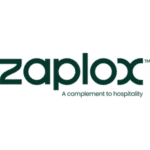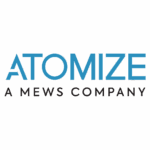 The last few years have been unprecedented, both globally and in the hospitality industry specifically. This means that extraordinary measures have been necessary for the industry to adapt, and a level of creativity and adaptation is still essential in all aspects of the industry, including financial planning.
The last few years have been unprecedented, both globally and in the hospitality industry specifically. This means that extraordinary measures have been necessary for the industry to adapt, and a level of creativity and adaptation is still essential in all aspects of the industry, including financial planning.
So, what should you do differently when it comes to financial planning for 2023?
1. Resource allocation
A critical component to the success of a business relates to the rigor around business processes such as resource allocation. Budgeting is top of mind and many hospitality companies are well entrenched in a process of top-down driven business planning at this time of year. The past several years have been some of the most difficult in the history of our industry which is why the year-end budgeting process has almost been meaningless due to the expected rate of recovery being relatively difficult to project.
However, for many markets heading into 2023, it is now estimated that RevPAR levels, particularly average rates in real terms, may reach or exceed 2019 levels. On top of this recovery is also the impact of inflation. It is critical in this environment that businesses allocate the time for a bottom-up review of operating costs at all levels of the business to determine those costs that are critical in the delivery of the business plan. Some cost-cutting has, of course, been implemented for the survival of the business, but as the business rebounds, we need to ensure that some of these costs do not automatically creep back in if they are not indeed required.
2. Cash flow management
The hotel industry bore the brunt of the Covid-19 pandemic with staggering declines in RevPAR across all markets. According to STR, RevPAR declined by 50% in 2020 compared to 2019 with an even more dramatic impact on GOP which showed an 85% decline, that in turn led to an increased level of financial stress across the industry. Any optimism for a post-COVID resurgence of hotel lending activity has lessened as the market stalls in the face of the highest interest rate environment in over a decade. Following resource allocation, cash flow projections and cash flow management are therefore important to understand where a property may face a financial challenge in relation to generating sufficient cash flow to cover its debt service.
Many properties go through the budgeting exercise without taking the additional steps of preparing cash flow models, which will quickly highlight periods of time where cash flow management will become critical. With proper planning, short-term financial distress can be resolved without the debt becoming delinquent and leading to foreclosure, liquidation, or sale to a third party.
3. Capital Investment
Capital spending has clearly been on hold for the past several years. However, as the business rebounds, it is important that robust conversations begin around the impact that capital will have in relation to the condition of the property, the impact on business and asset positioning in the competitive set, and the impact on cash flow. Operators and Owners have different perspectives on the effective use of capital: Operators are rightly concerned about brand standards while Owners will focus on short-term cash flow impact and potentially the impact that capital will have on a planned exit (depending on the ownership structure). To achieve success and balance for both Owners and Operators, conversations about capital need to be frequent and meaningful, with measurable results that will support the business plan and fit within the cash flow model.
4. Staffing
Staffing challenges are likely to continue in the hospitality industry for the foreseeable future as attracting and retaining qualified staff has become one of the hardest tasks for hotel management in today’s environment. In the situation where many former employees in the hospitality industry have sought refuge in more stable, higher-paid employment and the responsibilities of managers and line staff are blurred due to shortages, effective solutions require an investment in people but also in technology and automation.
Training programs and career path progression must be clear and effective. Technology and automation should begin to play an even more important role in the industry and self-check-in and check-out will have to be rolled out at a faster pace. The investment in hardware-compatible door locks is required and will result in lower labor requirements at the front desk. Table-top self-serve menus will reduce labor in restaurants and even bar service and minibars can be automated. The gig economy is, of course still important, but people want flexibility in their work schedules instead of the classic 9-5 model, which might need to mean redefining the role of gig workers, assigning them back-of-house roles that can be done remotely and don’t require a 40-hour week.
In closing, no matter which aspect of your financial planning you’re looking at, it should be based on continuous observation of the changing hospitality landscape, and careful evaluation of the methods available. The current situation also requires us to plan for changes: if your planning is thorough but flexible, it is likely to be more agile, which makes it far more future-proof.
















